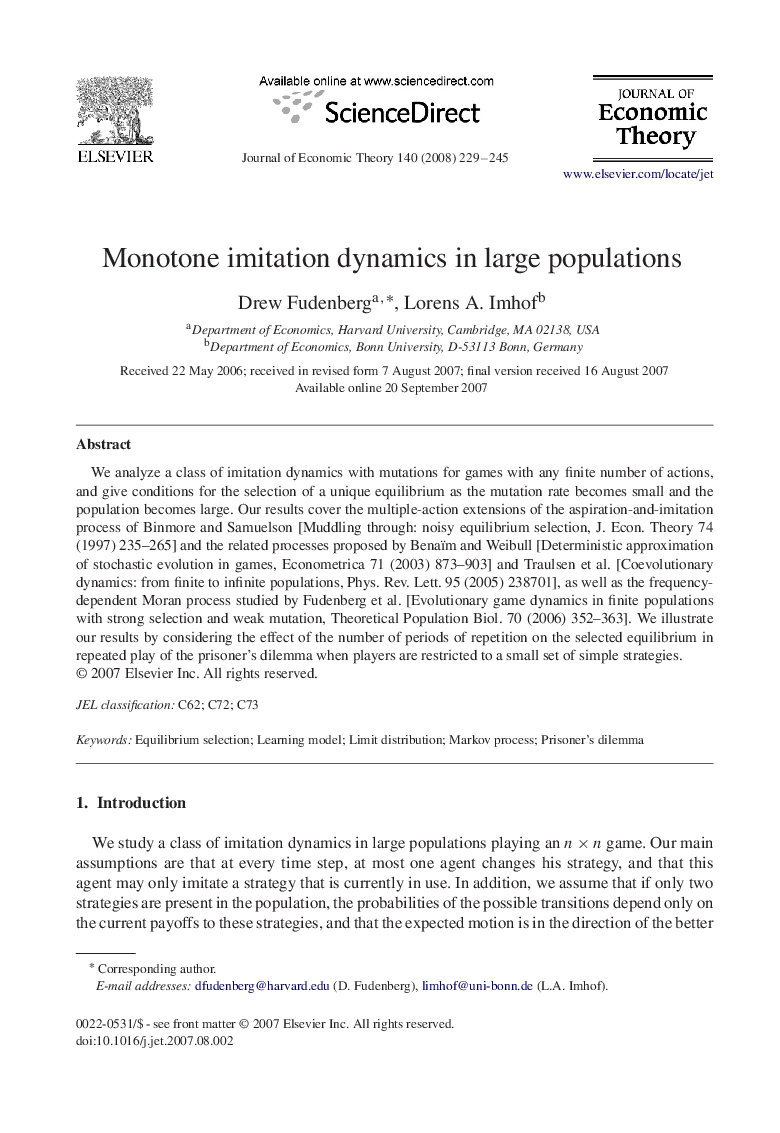| کد مقاله | کد نشریه | سال انتشار | مقاله انگلیسی | نسخه تمام متن |
|---|---|---|---|---|
| 957684 | 1478755 | 2008 | 17 صفحه PDF | دانلود رایگان |

We analyze a class of imitation dynamics with mutations for games with any finite number of actions, and give conditions for the selection of a unique equilibrium as the mutation rate becomes small and the population becomes large. Our results cover the multiple-action extensions of the aspiration-and-imitation process of Binmore and Samuelson [Muddling through: noisy equilibrium selection, J. Econ. Theory 74 (1997) 235–265] and the related processes proposed by Benaı¨m and Weibull [Deterministic approximation of stochastic evolution in games, Econometrica 71 (2003) 873–903] and Traulsen et al. [Coevolutionary dynamics: from finite to infinite populations, Phys. Rev. Lett. 95 (2005) 238701], as well as the frequency-dependent Moran process studied by Fudenberg et al. [Evolutionary game dynamics in finite populations with strong selection and weak mutation, Theoretical Population Biol. 70 (2006) 352–363]. We illustrate our results by considering the effect of the number of periods of repetition on the selected equilibrium in repeated play of the prisoner's dilemma when players are restricted to a small set of simple strategies.
Journal: Journal of Economic Theory - Volume 140, Issue 1, May 2008, Pages 229–245